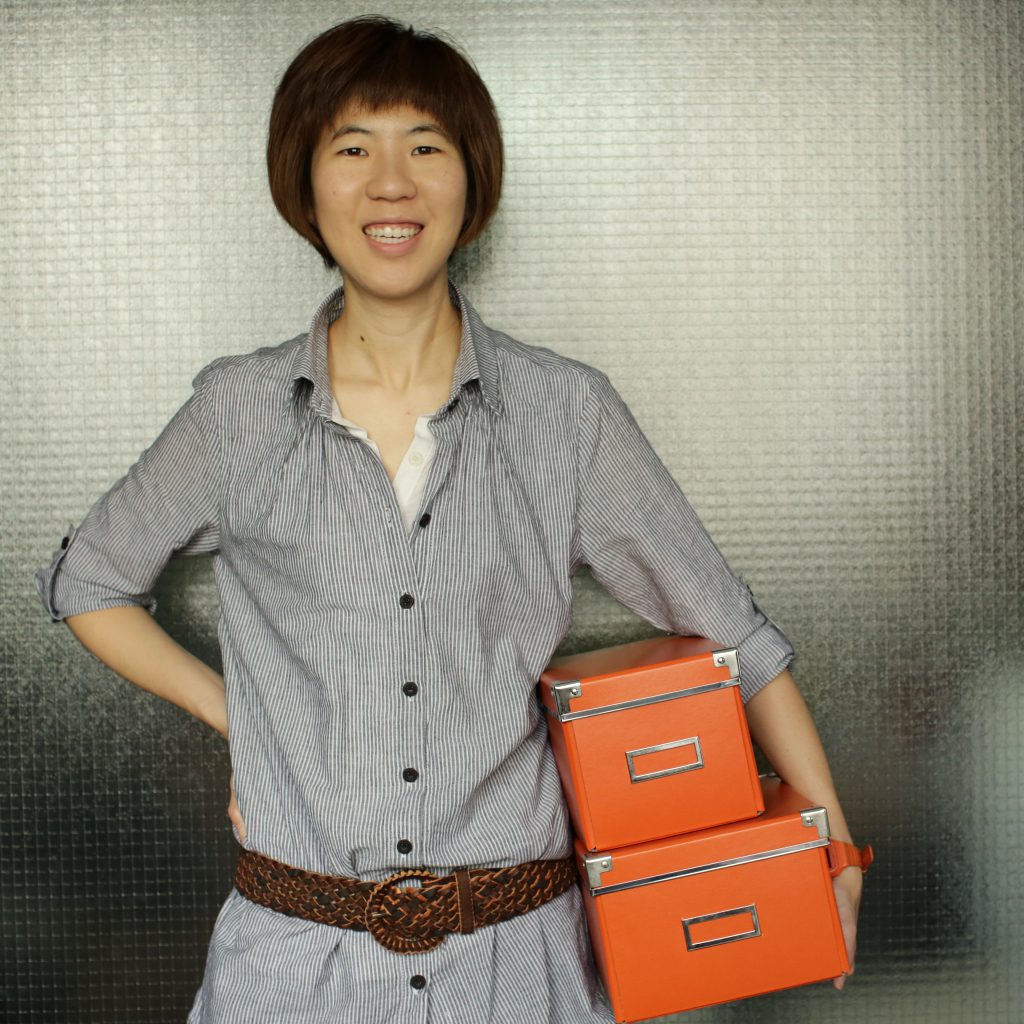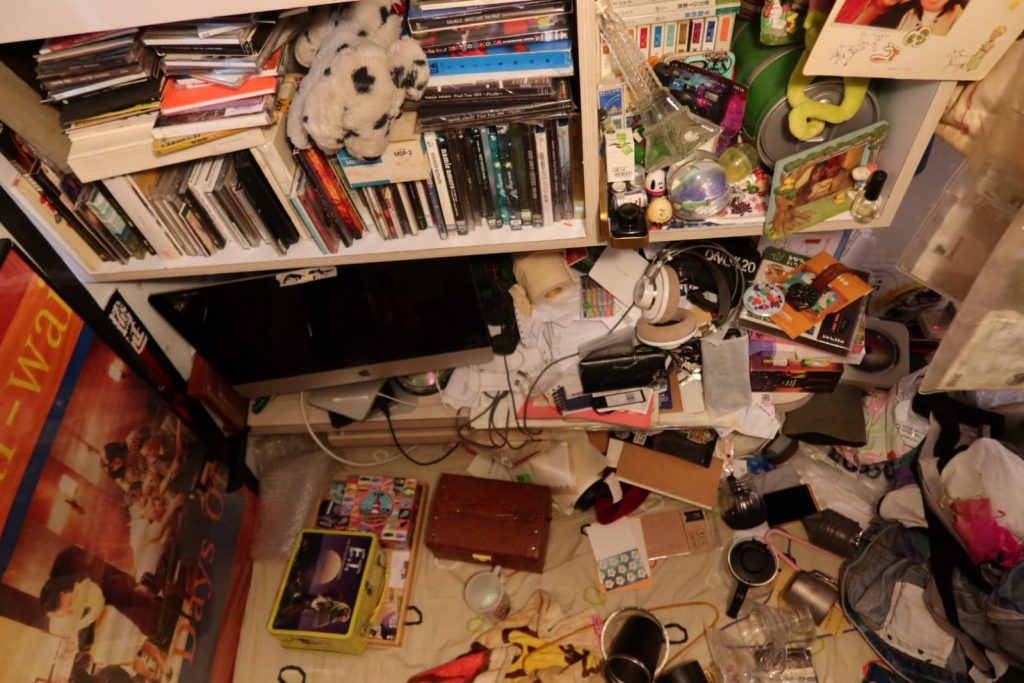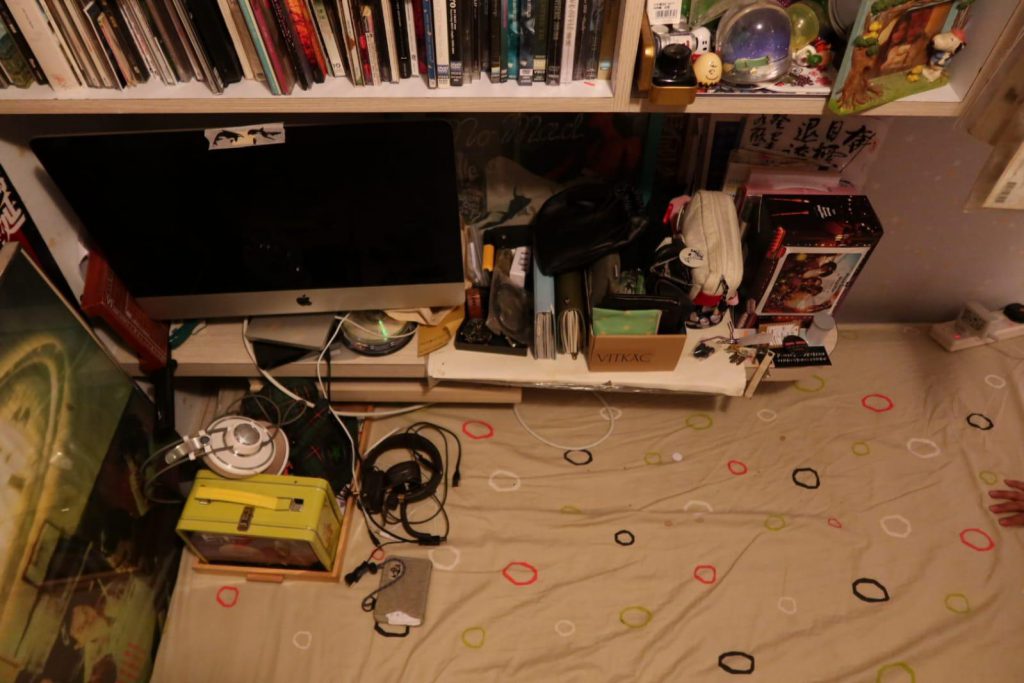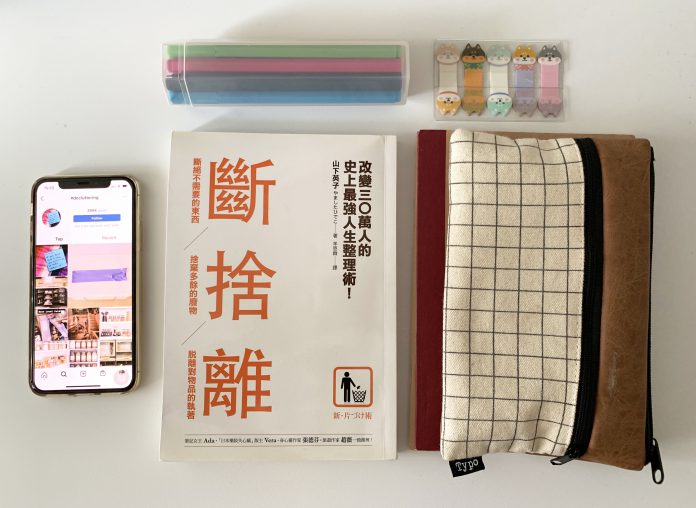How pandemic gives rise to decluttering – a way to cope with heightened global uncertainty.
By Kelly Yu
Carmen Chan Ka-man, a 38-year-old photography assistant says the coronavirus outbreak was a turning point for her to rethink her lifestyle and start practising decluttering after she lost her job earlier this year.
“I don’t even know where to start (decluttering). It gets to a point where I feel like my whole life is a mess,” Chan says, adding that her room was cluttered with random items like receipts, accessories and small gifts, a lot of which were not even unwrapped.
She finally sought help in October from Orange Tam, a certified professional organiser providing home decluttering service in Hong Kong, after her repeated attempts to clean up her home had failed.
Tam helped Chan to remove clutter and categorise her belongings in storage boxes within a few hours, clearing out a personal space in her room where she can finally put her books and music albums. With Tam’s help, Chan says she can now tell what item is important in her life and what is not. “It is a life-changing moment for me,” she says.

Organise Home to Organise Yourself
Tam created a Facebook page JuppUk (執屋) in 2016 to share decluttering tips and to offer organising service. The Facebook page has attracted more than 11,000 likes and followers as of November, 2020. It has gained about 1,000 followers during the pandemic.
Tam has seen a growing demand for decluttering service in Hong Kong due to the pandemic.
“People want to have a higher standard of living environment now as they need to work from home all day. Some clients request specifically to have their workstation cleared,” Tam says.
As the only Hongkonger certified by the U.S.-based National Association of Productivity and Organising Professionals, Tam says she hopes to advocate decluttering in Hong Kong.
She describes decluttering in a city with excess consumerism as a vicious cycle.
“We work so hard, so we buy things to treat ourselves. We end up hoarding things at home and wake up the next morning to work hard again,” Tam says. She advises clients to think twice before they buy.
“Space planning is important for optimising physical space. It helps create a clutter-free environment and boost productivity.”
According to a survey conducted by Greenpeace, a non-governmental environmental organisation, Hong Kong topped the charts in unhealthy consumerist shopping habits in 2017. 53 per cent of 1,000 Hong Kong respondents are owning clothes that they had never worn.
Tam says decluttering is not merely about throwing everything away. “Space planning is important for optimising physical space. It helps create a clutter-free environment and boost productivity,” she says.
She suggests beginners to start decluttering step by step. “Start from small corners in your house, or else it (the process) will be too overwhelming,” she says.


Mental Decluttering and Minimalism
Tam thinks decluttering is not just for physical freedom, but also mental freedom.“Decluttering is a journey of understanding yourself. It makes you understand more about your own needs,” she says.
“As we are tidying our stuff, we are also reviewing our past. It is a process to settle our past feelings and relationships. We will find it easier to get rid of old habits and unpleasant experiences in the past,” she adds.
“As we are tidying our stuff, we are also reviewing our past. ”
Tam is not alone in her pursuit of decluttering. Erica Ip Ka-yee, a 28-year-old tax consultant, thinks living with less has helped her to focus on the essentials in her life.
Before practising mental decluttering, Ip found it difficult to let go of others’ expectations. But now, she says she is able to commit more time to herself by journaling.
Ip set up a blog Minimalist HK in 2017 to promote a minimalist lifestyle among Hongkongers. Minimalism first emerged as an art movement in late 1960s in the United States, characterised by extreme simplicity in art-related spectrums. Today, it has become a lifestyle trend.
“Minimalism is about going back to yourself. Sometimes we are not aware that we try too hard to live up to others’ expectations. It is always beneficial to get rid of the clutter in your mind and in your surroundings to focus on what’s important,” Ip says.
Ip says keeping a clear mind is important. “The root of minimalism comes from philosophy – keeping a curious mind and exploring within yourself. It goes back to what to focus in life and how to spread this vibe to people around you,” she says.
Ip says the pandmic has forced us to go back to the basics as we have fewer travels and social gatherings.
“The root of minimalism comes from philosophy – keeping a curious mind and exploring within yourself.”

Focus on What We Can Control
Carole Bradshaw, a U.K.-based Core Process Psychotherapist and one of the directors at Integrated Medicine Institute of Hong Kong, points out decluttering can also help deal with uncertainty during the pandemic.
“The pandemic has heightened uncertainty on a global level. Our environment further affects our health. When we are surrounded by clutter, this often triggers stress responses such as anxiety,” she says.
She adds that decluttering helps to create structure and order which can reduce stress and anxiety amid the lockdown.
“Whilst we cannot control the wider effects of the pandemic, we can focus on what we can control in our environment. Clearing out our space, our homes, our desk, is one example of what we can control,” she says.
“Living more simply is less stressful and less clutter supports clarity of mind,” she says.
Edited by Regina Chen







































